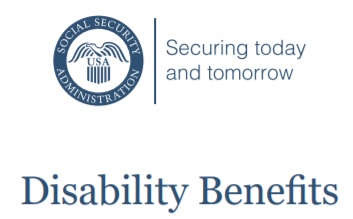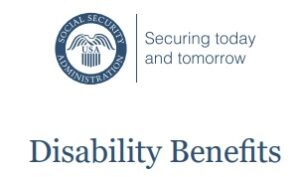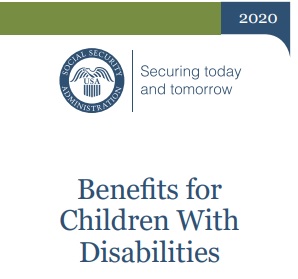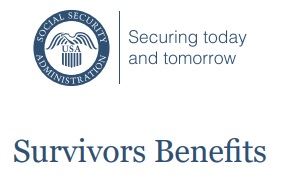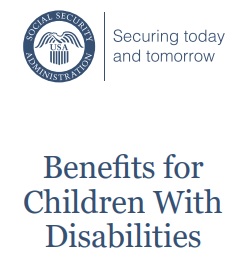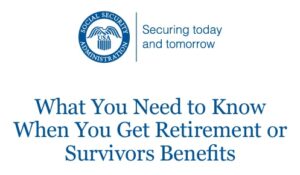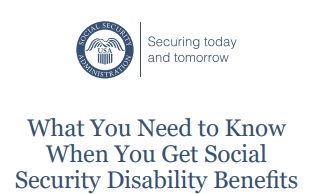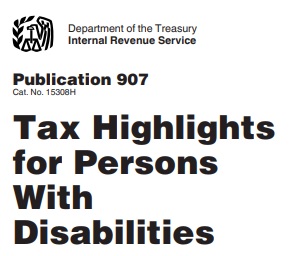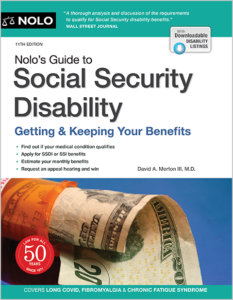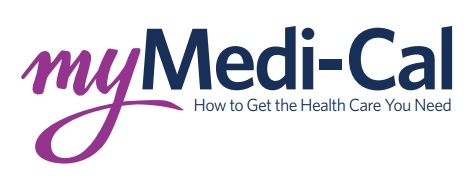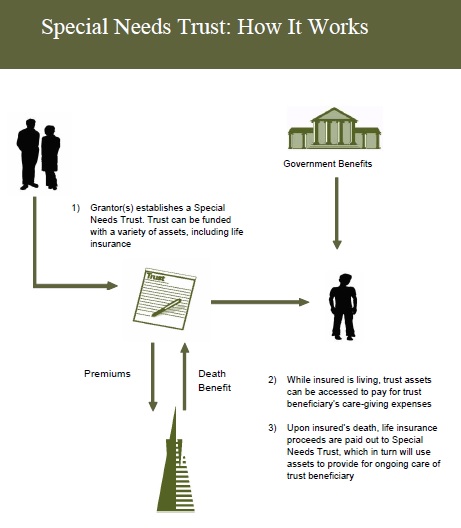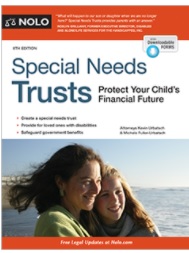What is the Social Security SSI DAC – Disabled Adult Child Program?
You can keep Medi-Cal – Pickel Program
Get SSDI on your Parents Work History
DAC – Disabled Adult Child
Keep Medi Cal & Increased benefits from Parents Retirement Benefits
The DAC – Disabled Adult Child program provides full-scope, no cost Medi-Cal to qualifying adults who receive “Social Security Disabled Adult Child (DAC) benefits.”
An adult is entitled to receive Disabled Adult Child benefits if:
- that adult is unmarried;
- has a disability that began before the age of 22
- and was dependent on his or her parent at
- the time of application,
- the time of the parent’s death, or
- at the time the parent’s own period of disability began Sec. 216. Other definitions
To qualify as a Medi-Cal Disabled Adult Child an individual must be entitled to receive Title II Disabled Adult Child benefits and must have had and lost SSI because of eligibility for these Title II benefits.
Individuals first receive Social Security DAC payments at the time of the retirement, disability or death of a parent.
When this occurs, an individual who is receiving SSI can begin receiving a DAC payment that is higher than the SSI payment rate. This makes the individual ineligible for SSI and for SSI-linked Medi-Cal.
Individuals who receive “Social Security DAC” benefits can qualify for full-scope, no cost Medi-Cal if they:
• Received SSI in July 1987 or later;
• Initially qualified for Title II DAC benefits, or qualified for an increase in Title II DAC benefits, on or after June 1, 1987; and
• Would be eligible for SSI now but for either:
° the current receipt of Title II DAC benefits which they first became eligible for while they were receiving SSI, or
° the increase in Title II benefits because of COLAs since they last received both Title II benefits and SSI.
In order for an individual with Title II DAC benefits to continue to receive MediCal with no Share of Cost, the Social Security Title II income is disregarded when calculating Medi-Cal eligibility. Under federal law, the individual is treated for Medicaid purposes as if they were still an SSI beneficiary.
Getting and Keeping DAC Medi-Cal
Any individual described above who qualifies should be able to get Medi-Cal either as a continuing benefit when she loses SSI or, if later, as a new applicant under the Medi-Cal DAC Program. The state periodically sends counties lists of Title II DAC recipients whose SSI/SSP has been or is being terminated. The counties are required to contact the recipients to see if they need assistance in completing the forms required for the application process. Eligible individuals should remain eligible as long as they meet all the other SSI eligibility rules. DAC Program Page 84 – Non Magi Medi-Cal 3.71
****
Eligibility Group Requirements*: An individual who was receiving Supplemental Security Income (SSI) benefits and who meets the following:
• Is at least 18 years of age;
• Has blindness or a disability which began before the age of 22;
• Has been receiving Supplemental Security Income (SSI) based on blindness or disability; and
• Has lost Supplemental Security Income (SSI) due to the receipt of Social Security benefits on a parent’s record due to the retirement, death or disability of a parent.
*If the person meets all of the above criteria, they may qualify as a Disabled Adult Child under Section 1634 of the Social Security Act (regarding DAC). This designation comes from the Social Security Administration. Eligibility for Medicaid may continue as long as the person is determined blind or disabled. However, if the person receives income from another source or exceeds the resource limits, they may become ineligible for Medicaid coverage See the rest of the New Jersey 2 page explanation
Resources & Links
- explanation on Sellers Law Firm website
- Hill & Ponton
- See the Official Social Security Booklet on benefits for Children with Disabilities
- See also Medicare Part B Premium Forgiveness
- IHSS In Home Supportive Services
- Department on Disability, on behalf of the City of Los Angeles
- special needs answers.com/

- CA Health Advocates.org HI CAP

- You can stay on your parents health insurance after age 26 … our webpage
- Special Needs Trusts our webpage
- SSI & SSDI our webpage
- Read you actual insurance policy our webpage
- Medi Cal Aged & Disabled Program our webpage
- Jump to section on

- #Social Security Disability Benefits Publication # 10029
- SSI Introduction Publication # 5-11000
- More than you ever wanted to know on SSI
Understanding SSI Publication # 17-008 120 pages - SSI in CA #11125
Find an Attorney

- Legal Match
- Findlaw.com
- American Bar Association
- Attorney Search Network
- Follow the links on this webpage. Many of them go to articles on Attorney Websites
- Also, see our appeals webpage
- Medi Cal Contact
- State Bar of California.com Attorney Referral Service
#Attorney 's --- Social Security Disability maze
- Sellers Law
- Hill & Ponton
- premier disability.com
- Cantrell & Green
-
- We don't necessarily know these attorney's...
- Editorial: Lawyers are fighting innovative proposals for more affordable legal assistance. That’s wrong LA Times 1.30.2022
Estate Planning
- We don't necessarily know these attorney's...
6 Steps to apply for Social Security #Disability
- Video 6 steps to apply
- ssa.gov/benefits/ssi/start
- SSI Child Disability Starter Kit (for children under age 18)
- Adult Disability Starter Kit(for children age 18 or older)
- What you need to know to get Social Secuirty Disabiltiy Benefits # 10153
- Disability Benefits # 10029
- How Social Security decides if you are still disabled # 10053
- Social Security Outline Court of Appeals 9th Circuit
Pickle Program
#Pickle Amendment
- When a person receives SSI and one of their parents retires, becomes disabled, or dies, the person switches from receiving SSI to receiving SSDI. Sometimes a person can receive both SSDI and SSI.
- Getting SSDI usually means you’ll get more money. When that happens, people are sometimes told that they will lose their Medi-Cal coverage, or that they will have to pay a higher share of cost because their income is too high. Some people are even told by staff at the Social Security Administration or Medi-Cal that they will lose their Medi-Cal.
- The Pickle amendment states that if an individual’s monthly income is over the SSI limit simply because they went from receiving the SSI stipend to the higher SSDI stipend, they maintain their eligibility for Medi-Cal – Medicaid. FAQ 2 page flyer
- The DAC Medi Cal program maintains the status quo with respect to Medi-Cal by continuing to provide categorical Medi-Cal so long as the individual would be eligible for SSI if the individual were not receiving the DAC Social Security payments. The DAC Medi-Cal program, like the Pickle program, also provides protection from loss of SSI-linked Medi-Cal caused by Social Security COLAs. This second part of the DAC Medi-Cal program is sometimes called the “Pickle DAC” or “pseudo Pickle DAC” program.
- The Employment for Disabled Americans Act of 1986 (Public Law 99-643) requires states to continue Medicaid coverage when an individual who became disabled before age 22 and received SSI becomes eligible for SSDI or has an increase in SSDI benefits. Such disabled adult children continue to be considered SSI recipients for Medicaid purposes.
- Disabled Adult Child (DAC) Medi-Cal Program Benefits
- A Quick and Easy Method of Screening for Medicaid Eligibility under the Pickle Amendment: 2023 Update
Instructions on how to move from SSI to SSDI and
#keep Medi Cal & Medicaid 2 pages
Resources & Links
- Learn More CA Disability 101
- Guide to Medi Cal Programs – Chcf Page 43
- Poverty Law.org
- Guide to Disability Rights Laws Ada.Gov
- special needs answers.com
- Rank vs Lynch
FAQ’s
Pickle Program
#Keeping Medi Cal after qualifying for SSDI
- MEDI-CAL certification [redetermination]
- MEDI-CAL recertification form:
- Medi Cal’s Contact Info
- pickle program above and here’s instructions
- contact Medi-Cal *
- Benefits Cal
- Pickle Program
- Instructions
- Gifts – In Kind housing probably don’t count as income.
Survivor Benefits
- Social Security #Survivors Benefits Publication # 10084
 HTML Social Security Website
HTML Social Security Website- Benefits for Children # 10085
-
DAC #Retirement - Survivor Benefits
Children can get benefits at any age if they were disabled before age 22. Publication 10084
. Nolo.com * Publication 10026
Links & Resources

- How to apply for Child's Benefits
- Benefits for Children with Disabilities # 10026
- SSI & SSDI if disabled
- Parent's Benefits # 10036

- How Social Security can help when family member dies # 10008

- Our Webpages on
- What You Need to Know When You Get Retirement or Survivors Benefits #10077
Disability Qualification Rules
#Disability SSI & SSDI Publications, Resources & Links
- Disability Benefits #10029
- SSI Child Disability Starter Kit (for children under age 18)
- Adult Disability Starter Kit(for children age 18 or older)
- Benefits For Children under 18 With Disabilities
- Other Disability Publications
- Social Security Handbook
- Understanding Supplemental Security Income SSI For Children-- 2019 Edition
- Western Poverty Law Center - Coverage for Low Income California's DAC Program Page 84 - Non Magi Medi-Cal 3.71
- Our webpage on SSI & Medi Cal
- ObamaCare - Mental Health - One of 10 Essential Benefits
- New Jersey 2 page explanation
- ssa.gov Section 1634
- Social Security Disability Planner: Benefits for A Disabled Child
- Pickle Amendment Screening Q & A
- The State Council on Developmental Disabilities (SCDD) is established by state and federal law as an independent state agency to ensure that people with developmental disabilities and their families receive the services and supports they need.
- Cal Fresh
Social Security Publications relating to Disability, SSI, SSDI
- What you need to know to get Social Secuirty Disabiltiy Benefits # 10153

- Disability Benefits # 10029
- How Social Security decides if you are still disabled # 10053
- Check list for what’s needed on the application 001
- Medicare # 10043
- Supplemental Security Income # 11125Benefits for Children with Disabilities #10026
- Benefits for Children # 10085
- How to get a benefit verification letter # 10552
- The Red Book – Employment Support for SSDI and SSI
- Working while disabled 10095
- Ticket to Work Program
- Publication 3966, Living and Working with Disabilities
- Publication 907, Tax Highlights for Persons with Disabilities

- How International Agreements can help you # 10180
- Social Security for Foreign Governments # 10566
- MORE Social Security Publications on their website
- Nolo's Guide to Social Security Disability We do have a reference copy in our office
- Sleepy Girl Guide to Social Security Disability
-
Links & Resources
Disability Benefits 101 on SDI * SSI *
publication 10026 - Benefits for Children with Disability
- What must I do to Qualify?
- What is Social Security's eligibility process
- Where is Social Security's home page for disability
- Can I get a Disability "Starter Kit?
- Tell me more about the Ticket to Work Program which gives you more choice in obtaining the services one needs to be able to go back to work and achieve your employment goals.
- Where can I get more disability information?
- Can I get an estimate of my retirement benefits? Sample Calculation
- Nolo.com Disability Benefits
Medicare Coverage
- Can I get Medicare After 2 years on Social Security Disability #10029?
- Learn More @ * Medicare Interactive *
- I'm already on SSDI, where can I get more information?
- Can we see a sample response to a website visitors questions?
- Do I automatically get Medi - Cal? (Medicaid?)
- bet tzedek.org Free Legal Aid
#SocialSecurityDisability
Factors in Evaluating
Parents & Care Givers
Check out our webpage on getting your own private disability coverage, in addition to Social Security Disability or SDI State Disability Coverage
- Disability Income – Pay Check Protection
- SSI – Supplemental Security Benefits – Automatic Medi Cal – SSDI
FAQ's
- Deafness?
- Mental Health – ACA/Health Reform Mandated Essential Benefit
- nolo.com/guide-to-social-security-disability
#My Medi-Cal
How to get the Health Care
You Need
24 pages
Smart Phones - try turning sideways to view pdf better
What Parents Need to Know about #Special Needs Trusts
Trans America
Special Needs Trust Brochure
#Nolo Special Needs Trusts
- Get Life Insurance Quote to fund the trust
- Our webpage on Special Needs Trusts
- Social Security Publication 10076 Guide for Representative Payees
- FAQ's
- When does the trust actually get funded, go into place, become effective?
- See page 47 of Nolo's book on Special Needs Trusts - The best known way is to specify what assets go into the trust at your demise. Be careful of probate, page 48. See Revocable Living Trusts on Page 50. Where a living trust can fund a Special Needs trust at your passing. See page 140 about actually creating the Special Needs Trust
- See chapter 2 for what payments and benefits the child can get
- See page 47 of Nolo's book on Special Needs Trusts - The best known way is to specify what assets go into the trust at your demise. Be careful of probate, page 48. See Revocable Living Trusts on Page 50. Where a living trust can fund a Special Needs trust at your passing. See page 140 about actually creating the Special Needs Trust
DI 10115.000
Childhood Disability Benefits (CDB)
| Section | |
|---|---|
| DI 10115.001 | Requirements for Entitlement to Childhood Disability Benefits (CDB) |
| DI 10115.005 | Eligibility for Child’s Benefits Based on Disability |
| DI 10115.010 | Other Childhood Disability Benefits (CDB) Factors of Entitlement |
| DI 10115.015 | Hospital Insurance (HI) Based on Childhood Disability Benefit (CDB) Entitlement |
| DI 10115.020 | Application Forms for Childhood Disability Benefit (CDB) |
| DI 10115.022 | Work Activity and Childhood Disability Benefit (CDB) Entitlement |
| DI 10115.025 | Childhood Disability Benefit (CDB) First Month of Entitlement (MOET) |
| DI 10115.030 | Retroactivity and Childhood Disability Benefit (CDB) |
| DI 10115.035 | Requirements for Reentitlement |
| DI 10115.040 | Childhood Disability Benefit (CDB) Reentitlement & Trial Work Period (TWP) Issues |
| DI 10115.045 | Summary of Evidence and Forms Required for Reentitlement Based on a Disability Which Began After Age 18 |
| DI 10115.050 | Termination of Childhood Disability Benefit (CDB) Entitlement |
View prior versions and HISTORICAL of this page on Archive.org
Related pages in
[child-pages]
[sibling-pages]
Social Security – Retirement Benefits
- How are Social Security retirement benefits taxed?
- How are Social Security Benefits reduced if you are working?
- Optimum Age to start taking benefits 62 – 70?
- CPA take on Retirement
- Survivor – Death Benefits
